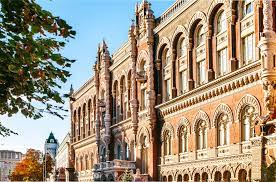
The National Bank of Ukraine (NBU) has downgraded its migration forecasts for Ukrainians: while in April this year it expected an outflow of 200,000 this year and an inflow of 0.4 million next year, it now estimates the outflow this year at 400,000 and the inflow next year at 300,000.
“This assumption has worsened compared to the April Inflation Report due to the significant destruction of the Ukrainian energy system, which is accompanied by prolonged power outages and increases the risks for the heating season,” the regulator said in its July Inflation Report, published on Friday.
The NBU adds that in addition to household difficulties, frequent outages have a negative impact on production processes, which reduces economic activity and demand for labor, further stimulating migration.
In absolute terms, the number of migrants staying abroad is expected to increase to 6.7 million this year and 7 million next year.
The NBU refers to UN data, according to which the number of migrants abroad increased by 240 thousand to 6.6 million in the first half of this year.
In a new report, the National Bank postponed the expected start date for Ukrainians to return home from 2025 to 2026. According to its forecasts, 200,000 Ukrainians may return home in the first quarter of 2026 and the same number by the end of the year, although the April inflation report estimated the net inflow in 2026 at 800,000.
The central bank explains the change in its forecasts both by the deterioration of living conditions in Ukraine, in particular due to power outages, and by the factor of greater adaptation of Ukrainians abroad due to the long duration of their stay.
Thus, the NBU now estimates the number of compatriots-migrants abroad at the end of 2026 at 6.6 million, up from 5.3 million in the April inflation report.
It is noted that the number of internally displaced persons will also remain significant, as, according to surveys, a significant number of them have nowhere to return to due to significant damage to housing infrastructure.
“Currently, the negative risks of an even greater outflow of migrants abroad, and of a smaller and later return prevail. Important factors in this may be legislative decisions by the governments of recipient countries to deepen the integration of Ukrainian migrants in host countries, and their children in the educational systems of host countries, and, accordingly, an increase in the propensity to unite families abroad,” the regulator notes.
The NBU believes that this will have a negative impact on labor supply and consumer demand and will hinder economic growth.
“Significant changes in the structure of the economy and increased demand for skilled labor will lead to further imbalances in the labor market, which will stimulate wage growth that will be higher than productivity growth in certain sectors,” the regulator predicts.
On the other hand, the rapid recovery of housing, infrastructure, and job growth due to the economic recovery may lead to a more active return of migrants, the central bank points out.

The National Bank of Ukraine (NBU) has imposed a penalty of UAH 33.76 million on state-owned Oschadbank, UAH 11.05 million on Pivdenny Bank and UAH 10.05 million on A-Bank, the regulator’s website reports.
According to it, Oschad was fined for improper organization of primary financial monitoring in terms of the obligation to develop, implement and update internal documents on the Law “On Prevention and Counteraction to Legalization (Laundering) of the Proceeds of Crime, Terrorist Financing and Financing of the Proliferation of Weapons of Mass Destruction” (AML/CFT) and the lack of procedures in them sufficient to ensure effective risk management.
It is noted that other reasons for the fine imposed on the financial institution include the bank’s failure to properly fulfill its obligation to implement an automation system, apply a risk-based approach, and verify new and existing customers.
Pivdenny Bank was fined for improper implementation of enhanced due diligence measures in relation to clients with high risk business relationships, untimely submission of documents at the NBU’s request to comply with the requirements of VAT/FT legislation, and failure to identify all the criteria for money laundering risk inherent in business relationships with clients.
A-Bank received a fine due to improper due diligence of the RIAs, new and existing customers, as well as improper application of a risk-based approach.
In addition, the central bank fined Diamond Pay LLC (TM DPAY, Dnipro) of Victoria Golubeva with a turnover of UAH 2.6 billion in 2023 for UAH 13.06 million for a number of violations in terms of primary financial monitoring. According to the company’s website, it is a service for organizing payment acceptance and online transfers, and its main services include payments on gambling websites, including Favbet.

The National Bank of Ukraine, which previously included certain terms of “significant improvement in the security situation” in its basic macroeconomic forecast scenario, has abandoned this approach and instead published an alternative scenario in its April inflation report, the main difference of which is slower economic growth in 2025 with a larger budget deficit, weaker hryvnia and reduced international reserves.
“The alternative scenario is based on the assumption of higher security risks and, accordingly, a slower return of the economy to normal conditions over the forecast horizon. Under this scenario, Ukraine’s economy will recover more slowly in 2025 compared to the baseline scenario. However, the inflation trajectory will differ slightly,” the NBU said in the report.
As reported, in the first inflation reports for July and October 2022 after the pause caused by the Russian invasion, the NBU, in addition to the baseline, provided an alternative scenario with a longer period of war, but later abandoned it, although the IMF continued to provide such a scenario.
In the renewed alternative scenario in the April inflation report this year, GDP growth in 2025, in particular, will accelerate to only 3.3% from 3% this year, while the baseline scenario envisages economic growth of 5.3% next year.
At the same time, in 2026, the baseline scenario envisages a slowdown to 4.5%, while the alternative scenario envisages an acceleration to 5.6%.
According to the NBU, the economic recovery in the alternative scenario will be more fragile, even with more significant budget deficits. “Increased imbalances in the labor market amid a worse migration situation than in the baseline scenario will restrain consumer and business activity, and increase pressure on business labor costs. The recovery of industrial production from the damage and losses caused under this scenario will be slower, as will the recovery of sown areas,” the NBU said.
He added that the energy deficit will also have a negative impact on economic activity, which, however, is assumed to remain unchanged compared to the baseline scenario – about 5% in 2024-2025.
“Ensuring macro-financial stability will require somewhat higher volumes of international assistance and, at the same time, significantly higher spending of the NBU reserves to maintain a controlled situation in the foreign exchange market and moderate inflation,” the NBU emphasized.
According to the document, the main factor supporting the economy will be the continued maintenance of a softer fiscal policy than in the baseline scenario. The budget deficit, excluding grants in revenues, will amount to 18% of GDP in 2025 (13.5% of GDP in the baseline) and 12% of GDP in 2026 (7.5% of GDP in the baseline). The government will continue to spend heavily on infrastructure, social welfare, defense, and security. Their impact on the budget deficit will be partially offset by additional measures to mobilize budget revenues at 3.5% of GDP, the NBU added.
According to its forecasts, large budget deficits in 2025-2026 will be financed by both additional domestic and external borrowings. In particular, the alternative scenario envisages international assistance of $28.7 billion in 2025 and $18.5 billion in 2026, compared to $25.1 billion and $12.6 billion in the baseline scenario, respectively. “As a result, this will make it possible not to resort to monetary financing of the budget,” the NBU said.
According to the alternative scenario, budget deficits will lead to an increase in public and publicly guaranteed debt, which will approach 100% of GDP at the end of the forecast period.
The NBU added that the inflation trajectory will be similar to the baseline scenario, but it will require more significant spending of international reserves: consumer inflation will temporarily accelerate to 8.6% at the end of 2024, followed by a decline to 5.5% at the end of 2025, compared to 8.2% and 6.0% in the baseline scenario, respectively.
To cover the larger structural deficit in the foreign exchange market, the NBU will spend more of its international reserves. Therefore, despite the higher external financial assistance, the reserves will remain almost unchanged in 2024 and will decrease over 2025-2026 to $33 billion, while in the baseline scenario they will amount to $39.3 billion at the end of 2026.
“At the same time, such volumes of reserves will allow us to continue to gradually ease currency restrictions,” the NBU said.
As reported, Ukraine’s GDP, according to the State Statistics Service, grew by 5.3% in 2023 after a 28.8% decline in 2022.
Earlier, Experts Club and Maxim Urakin released a video analysis of how the GDP of the world’s countries has changed in recent years, more detailed video analysis is available here – https://youtu.be/w5fF_GYyrIc?si=BsZmIUERHSBJrO_3
You can subscribe to the Experts Club YouTube channel here – https://www.youtube.com/@ExpertsClub

Ukraine’s international reserves in March, according to preliminary estimates of the National Bank of Ukraine (NBU), increased by 18%, or $6.7 billion – to $43 billion 762.7 million.
“Such dynamics is due to significant (more than $9 billion) volumes of receipts from international partners, which exceeded the net sale of currency by the National Bank and the country’s debt payments in foreign currency,” the NBU website explained on Friday.
In addition, the National Bank noted that $9.32 billion was transferred to foreign currency accounts of the Cabinet of Ministers in March, while $363.5 million was paid for servicing and repayment of the state debt.
As the regulator noted, Ukraine also paid $728.5m to the International Monetary Fund.
Among other factors determining the volume of reserves, the NBU named operations on the foreign exchange market: in March, the regulator’s net sale of foreign currency amounted to $1.79bn, which is 18.5% more than in the previous month.
According to balance sheet data, the NBU sold $1.81 bln on the foreign exchange market and bought $25.9 mln in reserves.
The central bank also indicated that the current volume of reserves was positively affected by the revaluation of the value of financial instruments, adding $266.3 million.
“The current volume of international reserves provides funding for 5.8 months of future imports,” the regulator stated.
As reported, the NBU in January reduced the forecast of Ukraine’s international reserves at the end of 2024 to $40.4 billion from $44.7 billion and to $42.1 billion from $45 billion at the end of 2025. Earlier, Experts Club analytical center and Maxim Urakin released a video analysis of how the GDP of the world’s countries has changed in recent years, more detailed video analysis is available here – https://youtu.be/w5fF_GYyrIc?si=BsZmIUERHSBJrO_3 Subscribe to Experts Club YouTube channel here – https://www.youtube.com/@ExpertsClub
EXPERTS CLUB, GDP, International reserves of Ukraine, MACROECONOMICS, NATIONAL BANK OF UKRAINE, NBU, URAKIN

The National Bank of Ukraine (NBU) has amended the plan of on-site inspections on financial monitoring, compliance with currency and sanctions legislation for 2024, the regulator’s website reports.
Lombard Finance PE with the participation of ITM Market LLC and I-Company LLC was excluded from the plan of on-site inspections due to the revocation of the license to operate and Inter-Realty PE and Company was included.
According to the plan, on-site inspections of banks are scheduled for 2024: in the first quarter – JSC CB PrivatBank, JSC RVS Bank, in the second quarter – JSC OTP Bank, JSC Bank Credit Dnipro, in the third quarter – JSC Crystalbank, JSC JSB Radabank, in the fourth quarter – PJSC Bank Vostok.
Non-banking institutions: in the first quarter – FC Mont Blanc Finance LLC, FC Wei For Pei LLC, in the second quarter – Lombard Doncredit LLC Inter Realty and Company, OTP Leasing LLC, in the third quarter – Nadezhda Insurance Company, NovaPay LLC, in the fourth quarter – Credit Union, Avance Credit LLC, Ultra Alliance Insurance Company.
The report emphasizes that the plan of on-site inspections was drawn up on the basis of a risk-oriented approach, including taking into account the results of the risk assessment of banks and non-bank institutions.

The National Bank of Ukraine (NBU) has imposed penalties on TAScombank, as well as financial companies “Ap. Mi. Finance” and “Hertz” for a total amount of UAH 272 thousand, stated on the website of the regulator.
“TASkombank” was fined for UAH 170 thousand for providing the NBU with statistical reporting data in violation of the procedure for their formation, which led to repeated provision within six months of reporting data with insignificant errors.
Meanwhile, Ap. Mi. Finance” and “Hertz” were fined UAH 51 thousand each for late submission of reports: for December 2023 and January of the current year, respectively.
These decisions were made on the basis of the results of off-site monitoring within the framework of the payment infrastructure oversight function and came into force on March 25, 2024.
Violators are obliged to pay the fine within five business days from the date of receipt of the relevant decision of the regulator.
Ap. mi. Finance, Hertz, NATIONAL BANK, NBU, TASCOMBANK, UKRAINE